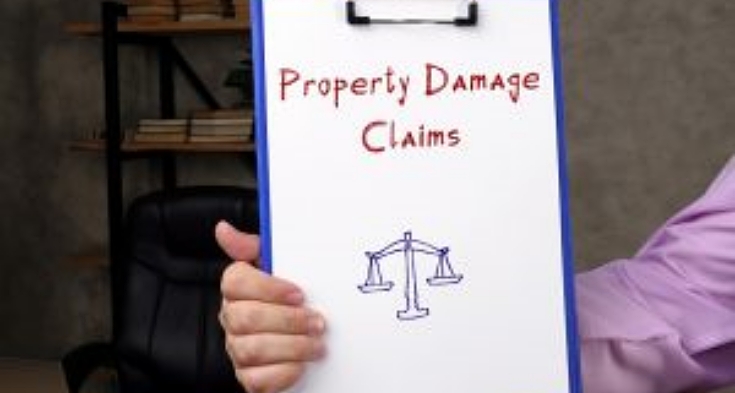
Receiving a letter from the Florida Department of Children and Families (DCF) stating that you have been permanently disqualified can be devastating. For many professionals, this type of notification feels like the end of their career. Suddenly, the work you have invested years into building seems out of reach, and the prospect of future employment in your chosen field appears uncertain.
ChatGPT said:
Permanently Disqualified By DCF does not always mean your career is over. While the designation is serious, Florida law offers pathways for exemptions, hearings, and challenges—especially when records are inaccurate or an offense qualifies for review over time. Understanding what this notice truly means and knowing your next steps is essential to protecting your future.
At Elevate Legal Services, PLLC, a Boca Raton-based law firm dedicated to defending professionals in Department of Health (DOH) violation cases, administrative complaints, and administrative law hearings, we understand how high the stakes are. If you have received a DCF disqualification letter, we urge you not to panic or give up. Instead, take informed action to safeguard your livelihood.
For immediate guidance, contact Elevate Legal Services, PLLC today. Call us at 561-770-3335 or email [email protected] to schedule a confidential consultation. Our mission is to defend professionals just like you against DCF and DOH actions that threaten careers, licenses, and reputations.
The Role of DCF in Florida Background Screenings
The Florida Department of Children and Families plays a central role inbackground screening for professionals working with vulnerable populations. Anyone applying for work or licensure in childcare, foster care, or related professions undergoes a criminal history check. Employers and licensing boards rely on these results to determine eligibility, and all screenings are tracked through the state’s Clearinghouse Background Screening System, which centralizes information across multiple agencies.
When a disqualifying offense appears in the record, DCF is required under Florida law to issue a notice of disqualification. The statutes most often cited in these letters are §39.0138 and §435.07, which set out the rules governing disqualification and exemption. This framework was designed to protect children and vulnerable individuals. But for many professionals, it also creates significant obstacles, particularly when offenses are old, nonviolent, or when restitution is the only outstanding barrier to eligibility.
Permanently Disqualified By DCF: What It Really Means
The language of “permanent disqualification” can cause immediate alarm. The phrase suggests that there is no path back, no opportunity for reconsideration, and no way to work in your chosen field again. In reality, Florida law distinguishes between offenses that result in absolute bars and those that permit professionals to seek an exemption from disqualification after certain conditions are met.
For example, serious offenses involving violence, sexual misconduct, or child abuse may result in an absolute prohibition on working in childcare or related roles. Other offenses, such as property crimes or theft, may prevent you from working for a set period but allow you to apply for an exemption after time passes and restitution is paid.
Understanding the nature of the offense, the date of disposition, and the completion of any probation or sanctions is crucial in determining whether you remain eligible to pursue an exemption.

Why Professionals Receive Disqualification Letters
Most DCF disqualification letters are triggered by three main issues. First, if a felony conviction occurred within the last three years, Florida law does not allow an exemption yet. Second, if you completed probation, sanctions, or other court-ordered requirements within the past two years, you remain ineligible. Finally, if you still owe money to the court—whether fines, restitution, or liens—the Department will continue to disqualify you until those financial obligations are resolved.
A typical example involves a professional who was arrested for grand theft, convicted in early 2025, and ordered to pay restitution. If they are still making payments and remain within the two-to-three-year waiting period, DCF will automatically mark them as permanently disqualified. This creates the impression that the situation cannot be fixed, even though the law allows for exemption petitions once the waiting period and financial obligations are satisfied.
The Professional Impact of a DCF Disqualification
For Florida professionals, a disqualification letter can be life-altering. Employers may not be able to hire or retain you while the disqualification is in effect. Professional licensing boards may delay or deny your application, preventing you from working legally in your field. Even if your current job is outside childcare or foster care, the notice can damage your reputation and cast doubt on your ability to perform in other regulated industries.
The effects extend beyond employment. Losing the ability to work in your chosen field can cause financial instability, disrupt family life, and undermine years of education and training. This is why acting quickly after receiving a disqualification notice is essential.
The First Steps After Receiving a DCF Disqualification Notice
The first thing you must do is carefully read the letter. These notices explain the offense cited, the statute applied, and whether you are currently eligible to apply for an exemption. Many professionals skip this step and assume they are permanently barred, missing key information about possible future eligibility.
The second step is to verify the accuracy of the record. Mistakes occur in criminal databases more often than many realize. If your notice cites an arrest or conviction that you believe is incorrect, you must challenge it with the Florida Department of Law Enforcement (FDLE). In cases involving arrests outside Florida, you will need to contact the state’s criminal record repository. For federal records, the FBI maintains the database. Correcting inaccuracies can immediately change your status.
Finally, determine whether you qualify for an exemption. If more than three years have passed since the conviction, more than two years have passed since probation or sanctions ended, and all restitution is paid, you may be eligible. If not, the DCF publishes an official Exemption from Disqualification Process FAQ that explains timelines and conditions in more detail.
The Exemption from Disqualification Process
When you qualify, the exemption process becomes your path back to professional eligibility. Under §435.07, Florida Statutes, you must demonstrate through clear and convincing evidence that you pose no risk of harm. DCF provides official guidance in its Exemption from Disqualification Operating Procedure, which lists the documents and types of proof typically required for a successful application. This is more than filling out forms; it requires building a comprehensive case that proves rehabilitation, stability, and professional responsibility.
Successful applications often include letters of recommendation, records of employment, certificates of rehabilitation or counseling, and community service documentation. Your attorney may also help gather statements from supervisors, clergy, or other community leaders attesting to your character. Every piece of evidence matters because DCF evaluates whether you are trustworthy enough to return to professional practice.
Administrative Hearings and Legal Representation
Sometimes DCF denies an exemption request. When that happens, you may be entitled to an administrative hearing before an Administrative Law Judge (ALJ). These hearings operate like court proceedings, with the presentation of evidence, witness testimony, and legal arguments. An ALJ then issues a recommended order, which DCF or another agency considers in making the final decision.
This stage is where representation becomes critical. An experienced Florida administrative law attorney knows how to present your case effectively, challenge weak evidence, and highlight your rehabilitation efforts. At Elevate Legal Services, PLLC, we regularly defend professionals at administrative hearings involving DCF, DOH, and other state agencies. Our approach combines deep knowledge of the law with practical strategies to protect your career.
Why Time Matters
One of the biggest mistakes professionals make is waiting too long to respond. The longer you delay, the greater the impact on your career. Employers may terminate your employment if you remain ineligible to work. Licensing boards may deny or suspend your license if you fail to act. Deadlines for appeals and exemption applications are strict, and missing them may mean losing your right to challenge the disqualification. Acting quickly is the single most important step you can take to safeguard your career.

How Elevate Legal Services, PLLC Supports Professionals
At Elevate Legal Services, PLLC, we provide full-service representation for professionals facing DCF disqualifications, DOH violations, and administrative law complaints. Our practice is built on defending those whose careers are threatened by administrative agencies. Whether you need help applying for an exemption, challenging an inaccurate record, or preparing for an administrative hearing, we stand ready to fight for you.
Our team knows the challenges of Florida’s administrative law system. We understand how devastating it can be to lose your professional standing. That is why we focus on practical solutions, strategic defenses, and aggressive advocacy on behalf of every client we serve.
If you have received a DCF disqualification notice, call us today at 561-770-3335 or email [email protected]. Your career is too important to leave to chance, and our attorneys are here to help you navigate this complex process.
Conclusion
A permanent disqualification letter from the Florida Department of Children and Families can feel like a career-ending event. But in many cases, it is the beginning of a legal process that can ultimately restore your professional eligibility. By understanding the statutes involved, recognizing your rights, and taking timely action, you can move forward with confidence.
Permanently Disqualified By DCF? The most important step is securing experienced representation. Elevate Legal Services Helps Florida Professionals Fight DCF Disqualifications, Challenge Errors, Pursue Exemptions, And Navigate Administrative Hearings With Confidence.
Contact us today at 561-770-3335 or email [email protected] to schedule your consultation. Together, we can protect your career, defend your reputation, and secure your future.





